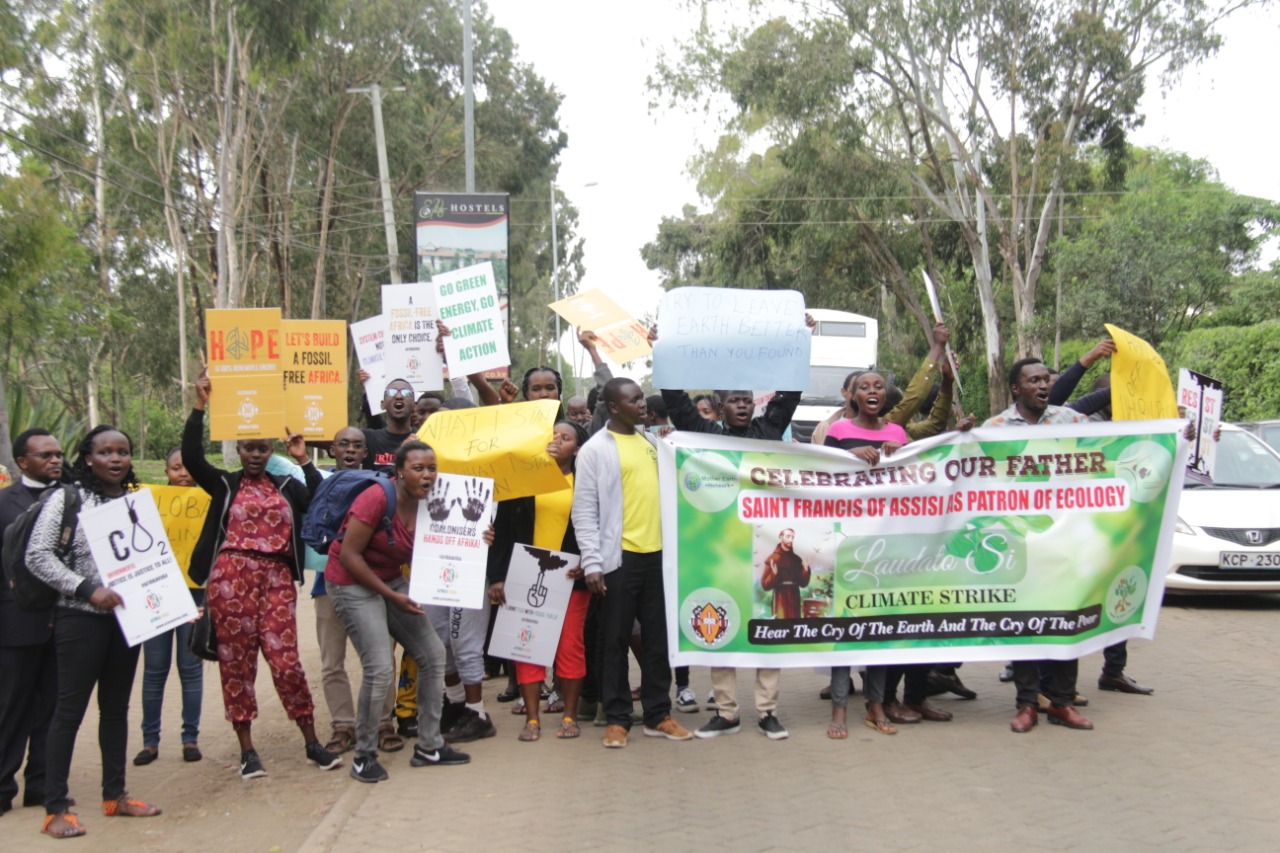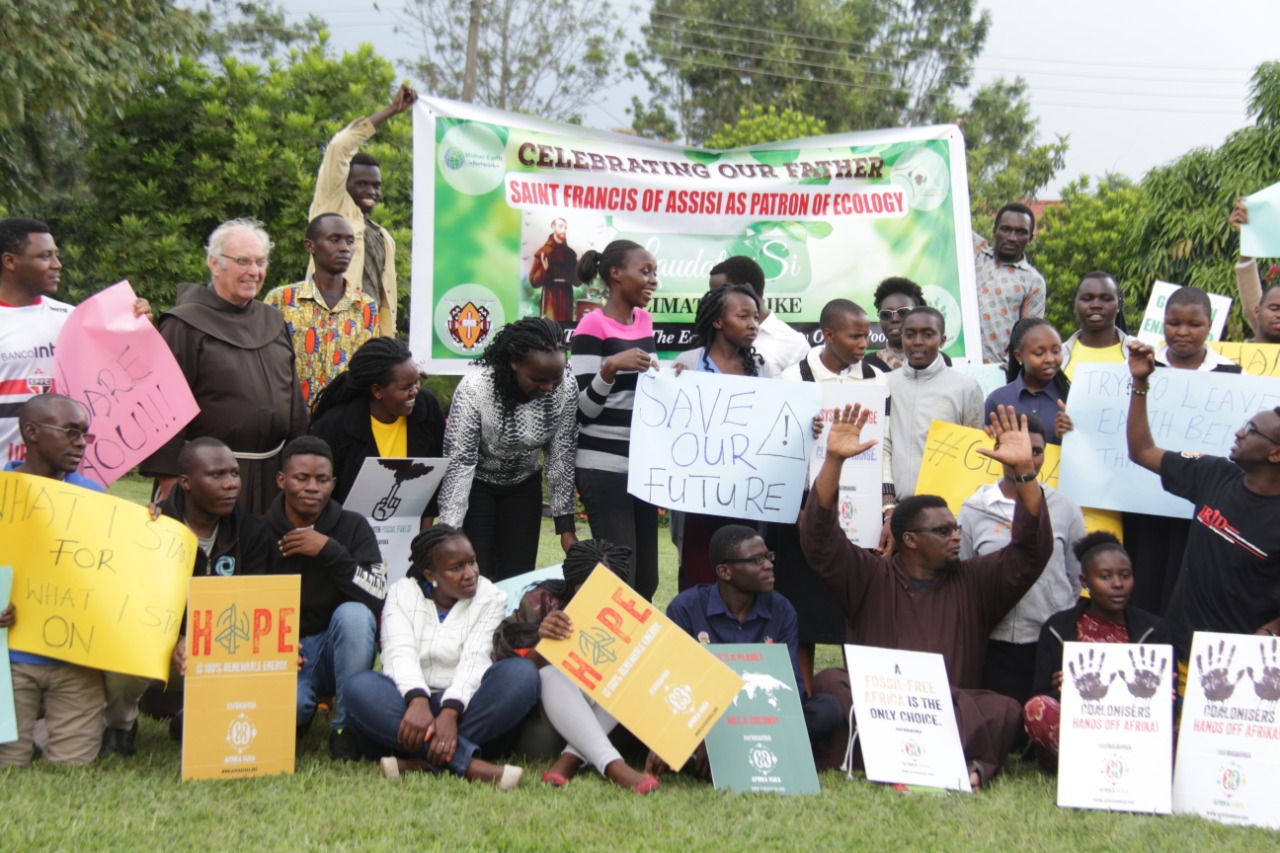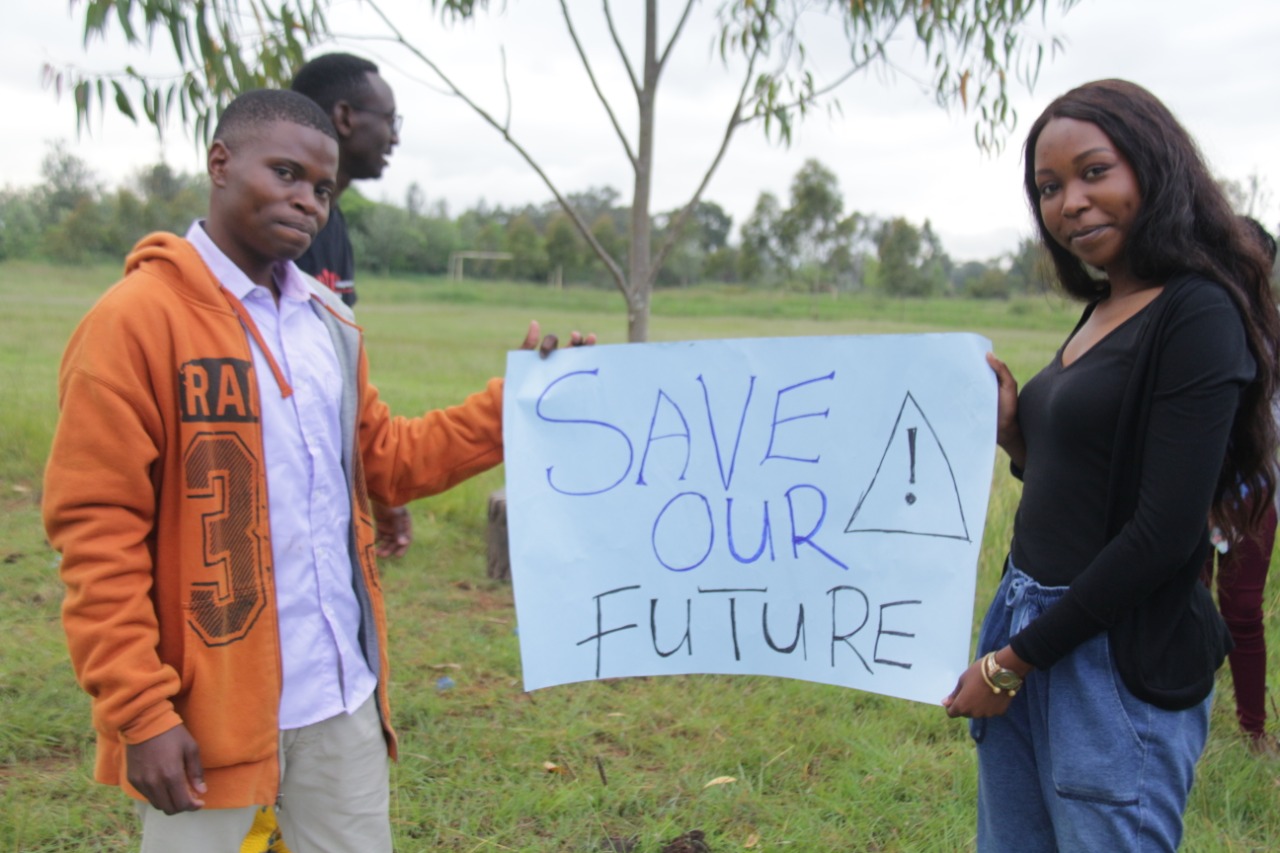All Hands on Deck, World Environment Day 2020 – Humanity at the Crossroads
Human civilization has been put on notice. And the fundamental issue of our time is the climate crisis. This climate emergency integrates so many of our present-day concerns with issues of economic sustainability, energy production, and social responsibility We are literally at crossroads.
We need to seriously reflect on our systems of social, political, and economic choices and how best we are responding to the enormous problems that have been and continue to be created by this climate crisis?
We cannot limit ourselves to a single solution if we are to avert this climate crisis. It will require the rigor of scholarly input, a sober analysis of our environmental bodies, a strong political will but most important of all, a massive resounding and civic awakening in response to this monumental challenge. As the voices of global environmentalists develop a consensus on clean energy resources, countries like Uganda are just getting excited about the discovery of oil as an economic saviour. Therefore, a variation of solutions needs to be tabled on how to effectively respond, how to transform our organizational setup, recognizing the need for new ecocultural collaborations, recognizing interspecies codependency, and frankly, spiritual awakening to the dire fate of our "Common home."
Specific to Uganda, among many solutions, and in response to this crisis, is the awakening of not only the youth but also children as spirited activists in this effort. A lot more needs to be done to bolster the civic imperative of non-government actors in the pursuit of a better, cleaner, and sustainable environment.
As the world continues to get ravaged by the COVID-19 pandemic, we still have to maintain some semblance of civility and order. 5th June will see humanity celebrate World Environment Day with a call to humanity to respect Nature and its Biodiversity.
With a constant concerted push to keep fossil fuels in the ground, advocacy for alternative renewable sources of energy, and the urgent need to beat plastic pollution as well as plant more trees humanity needs to step up her efforts with precision and diligence. Without this concerted effort, locusts and rising water levels from our lakes and rivers will be the least of our worries.
For this reason, Uganda’s Little Hands Go Green in partnership with 350Africa.org, NEMA Uganda, the National Forestry Authority Uganda and the Deputy Speaker of Parliament in Uganda is hosting a candid virtual workshop about Nature and Biodiversity and our role as the human race to ensure it is preserved on June 05th.
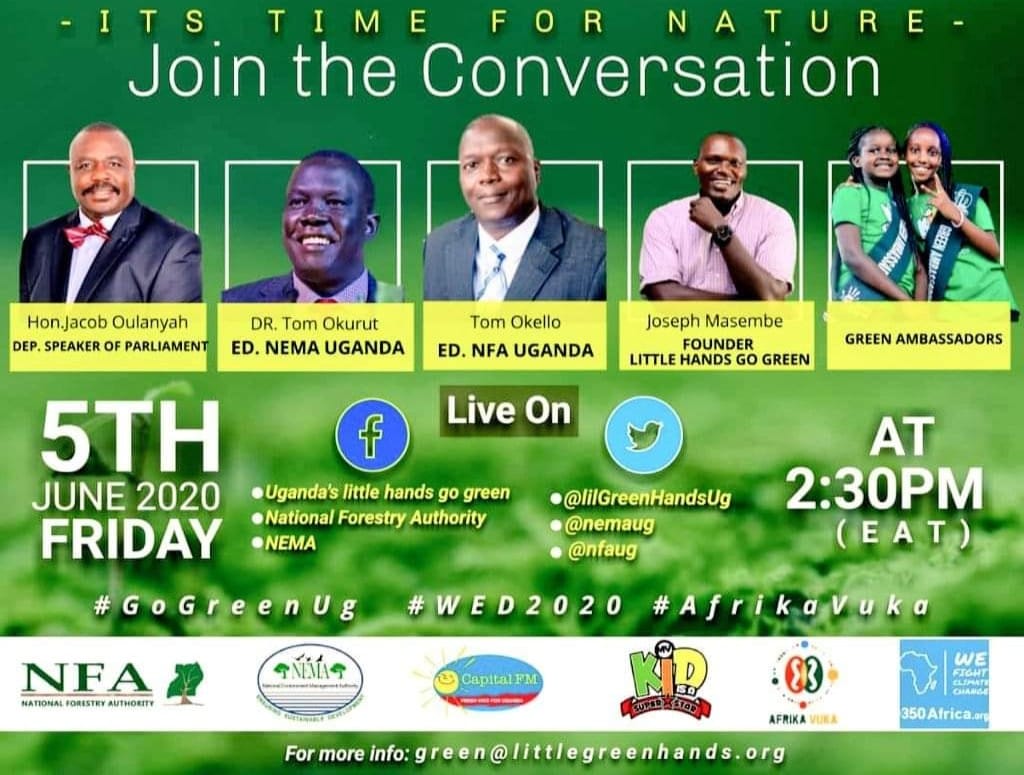
This online conversation will start at 2.30 pm East African time and will be streamed live on various social media pages including the 350Africa Facebook page, Uganda’s Little Hands Go Green Facebook and Twitter handles as well as the NEMA Uganda pages.
Join us and let’s share our voice of change and reason with the very custodians of our environment.
By Joseph Masembe, founder and team leader of Little Hands Go Green.
Ugandan communities concerned over oil’s deal amid COVID-19 crisis
The Government of Uganda has applauded the recent agreement that will see Tullow Oil Plc transferring its assets for Lake Albert Development project and the proposed East African Crude Oil Pipeline System to Total Uganda at $575 million (Sh57.5 billion).
According to the Minister of Energy and Mineral Development, “it is a critical development that takes the (Oil and Gas) sector towards the Final Investment Decision (FID) that the country is eagerly waiting for”.
That joy isn’t however shared with communities in Western parts of Uganda. They are deeply concerned that if the Ugandan government allows the presence of oil activities in the eco-sensitive areas such as the Ngaji block which have been put up for bidding to the investors, their lives will be ruined because they have depended on the tourism for their livelihood which will disappear.
If the government allows the oil exploration in the Ngaji oil block, which is located in the ecosensitive Lake Edward and Queen Elizabeth National Park (QENP), this seriously will put such sensitive ecosystems at risk, triggering the slow but certain disappearance of the rich ecological, economic and social importance of such ecosystems. Agriculture, fisheries, tourism, and other income-generating activities for local communities are also likely to be negatively impacted.
Communities and activists are also worried about oil exploitation activities will also result in the generation and release of greenhouse gas emissions into the atmosphere, which goes against the 2015 Paris Climate Change Agreement ratified by Uganda.
As the world is going through a terrible situation of preventing and ending global coronavirus pandemic, Uganda, like all other signatories to the Paris Agreement should be more concerned about a Just Recovery Plan that focuses on health emergencies, addresses the urgent needs of people and support public health systems currently under severe strain. As of April 26th, the country has a total number of 75 COVID-19 confirmed cases.
By Edwin Mumbere - Kasese
Adentan Municipality contributes towards the 100% renewable energy in Ghana
‘Has anyone gone up North of Ghana? Some parts of our country are getting warmer and one of the objectives of the International communities is to reduce the earth’s overall temperature by 1.5 degrees, it is each of our responsibility to ensure we maintain Ghana’s NDCs and offer our contribution to solving the climate crisis” said Mr Foster Gyamfe of the Ministry of Finance Economic Strategy and Research division, at a workshop organized by 350 GROC at Adentan Municipal Assembly. Mrs Gifty Owusu - Nhyira of the Ecobank Ghana an accredited entity to the Green Climate Fund (GCF) lauded the initiative of the GROC Team “our doors are open to review and advise on any climate intervention projects from this workshop”
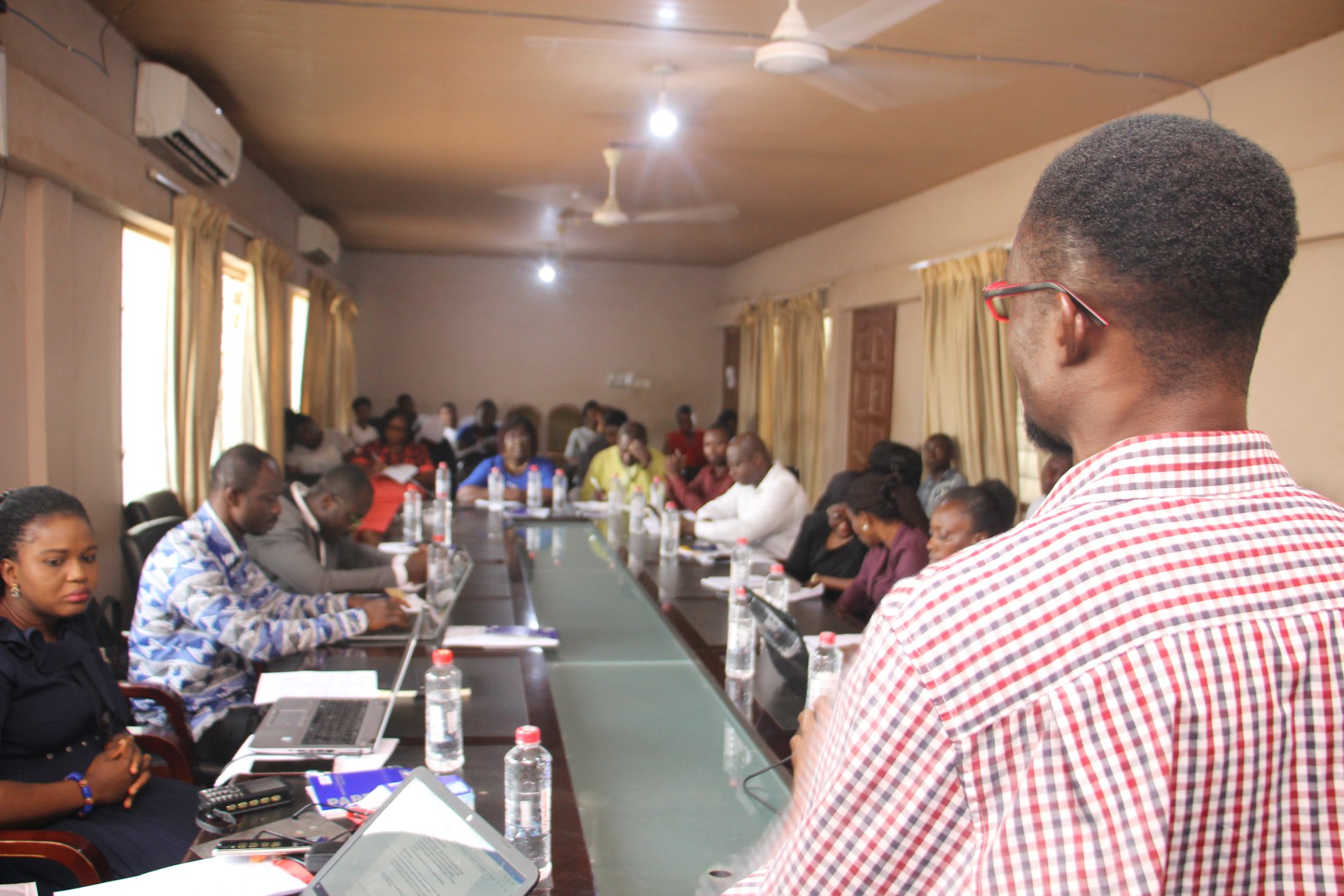
The workshop was held as part of the Renewable Energy for Communities (RE4C) campaign by 350 GROC and it brought together 40 participants, that is,25 members from the district and 15 partners. The workshop offered a space to discuss the present renewable energy plans in the Municipality, the failures and successes in the implementation of the pre-existing plans and finally the GROC team worked alongside the community to draft the renewable energy plan of the Adentan Municipality that is more viable.
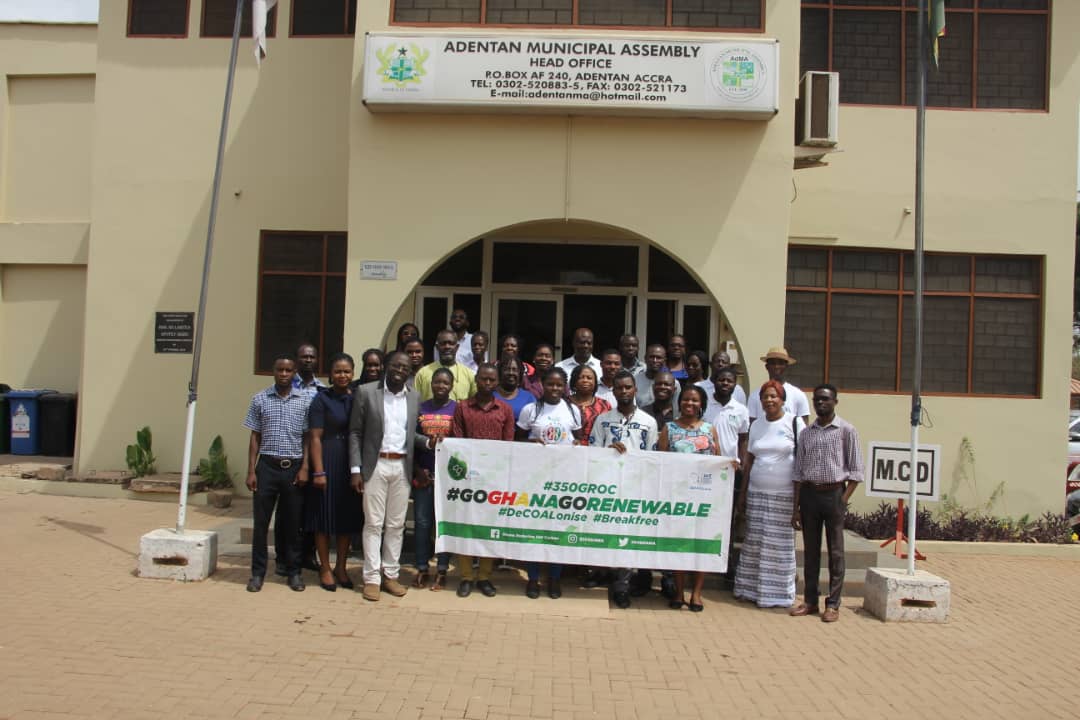
Adentan Municipality is amongst the 5 districts in Ghana that 350 GROC is working with for this phase of the Renewable Energy for Communities (RE4C) campaign. Success in the incorporation of the 5 district renewable energy plans in the existing Medium Term Development Plans, would be another milestone for 350 GROC after a long fight to stop the establishment of coal-fired power plants in Ghana, as it endeavours to promote nationwide renewable energy awareness geared towards sustainable development.
People of Onupi and Nigeria do not need coal
“I want the Federal Government to intercede for us so our women won't experience miscarriage again". "If the government was providing social amenities to community members, then we would have never accepted the destructive coal mining activities". Those are words of respectively Mrs Agagwu Rachel and Mr Alfa Stephen, the chairman of Onupi Coal Committee when attending the civil society meeting organized by GIFSEP and partners like International Center for Investigative Reporting (ICIR), Heinrich Boll Foundation, Climate and Sustainable Development Network and Global Rights to mark World Social Justice Day.
The meeting was an opportunity for community leaders and civil society groups to strategize on the way forward in ensuring the voices of the community members in both Kogi and Gombe states are heard and to advocate for a coal-free society that keeps social justice and safety at the forefront.
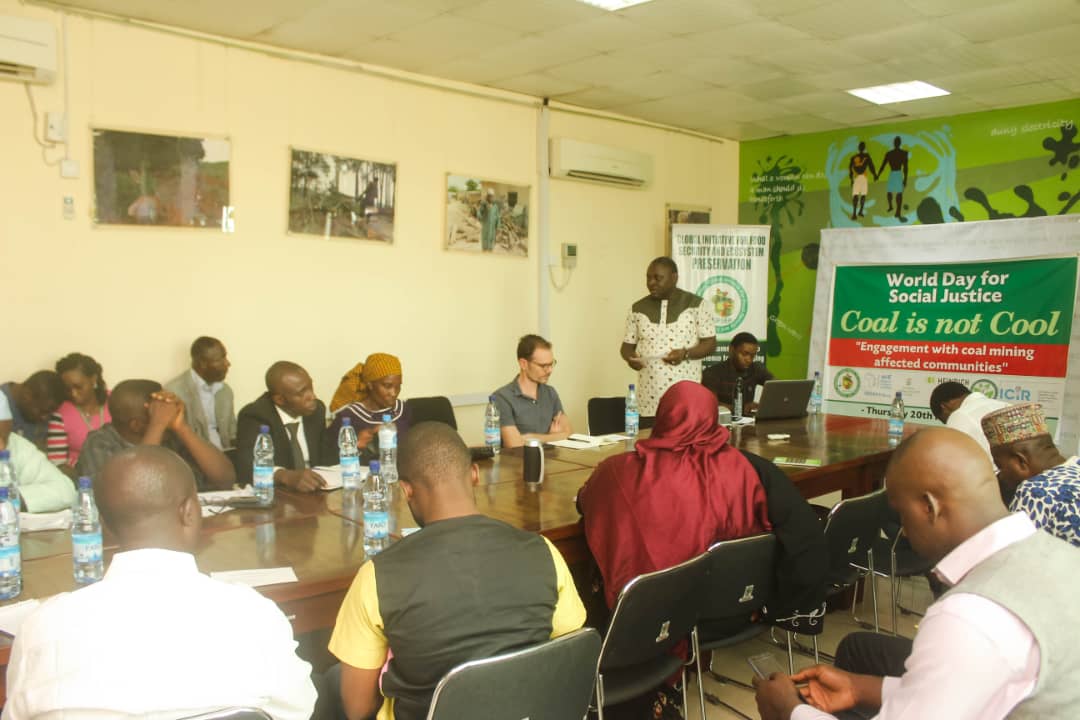
The gathering was inspired by a research GIFSEP did last year to ascertain the status of coal mining and to identify the actors and financiers of coal mining in Nigeria. The research carried out by the International Center for Investigative Reporting (ICIR) in Kogi and Gombe states with support from 350.org was a response to the shift in fossil fuel investment caused by Nigeria’s yawning gap in power generation and supply, which prompted many stakeholders including the members of the National Assembly to demand coal-powered stations.
This research revealed serious troubling impacts local communities are now confronted due to the activities of Dangote coal mine. These impacts include the destruction of water sources contamination of alternative borehole sources, health issues like high rates of miscarriage. More detailed information about the research’s findings can be viewed here.
Community members of Kogi and Gombe states alongside others in Nigeria intend to continue raising their voices to ensure their right to a clean and healthy environment filled with sustainable prosperity. According to participants, the meeting was just the beginning of the journey towards a coal-free Onupi and Nigeria.
Kenya and Nigeria joined divestEd!
Divestment from fossil fuels has been gaining quite the momentum globally in the last few years. This week two youth groups in Kenya and Nigeria took action, joining the Fossil Fuel Divestment Day.
On 12th February, students in the Chiromo campus of the University of Nairobi, Kenya engaged in a 1-hour sit-in session. The forum attracted over 40 participants and took the form of a participatory dialogue to exchange on the need to invest in renewable energy in the campus, its advantages, as well as reaching out to other campuses to follow suit. The students, mostly drawn from the Chiromo Environmental Awareness Club and environmental scientists in the making had strong contributions on how renewable energy on campuses could look like, citing the need for academia and researchers to take a lead in implementing solutions to the fight against the climate crisis.
It happened! We are likely the first across the world to host the #divestED event owing to our special circumstances that could not allow us a quorum tomorrow.
Thanks for all students in @ceackenya who hosted us, and keenly contributed to the dialogue. @divesteddotorg pic.twitter.com/jn4zNNShp6
— Y-CEARE (@YCeare) February 12, 2020
Among the emerging issues was the need to have a strong legal requirement that enables campuses and institutions to have renewable energy systems as a part of them going green in energy production and usage. The action was led by Y-CEARE (Youth Coalition for Environmental Advocacy and Renewable Energy), a team part of AfrikaVuka.
In Nigeria, GIFSEP (Global Initiative on Food Security and Ecosystem Preservation) held a workshop on reducing carbon footprint, followed by a mock protest within the university of Abuja, targeting students from the department of geography and environmental management. The team intended to encourage the department to join the ongoing efforts to transition from fossil fuels addiction to renewable energy. Students specifically asked the university administration to switch to renewable energy and install solar panels on top of administrative and campuses blocs.
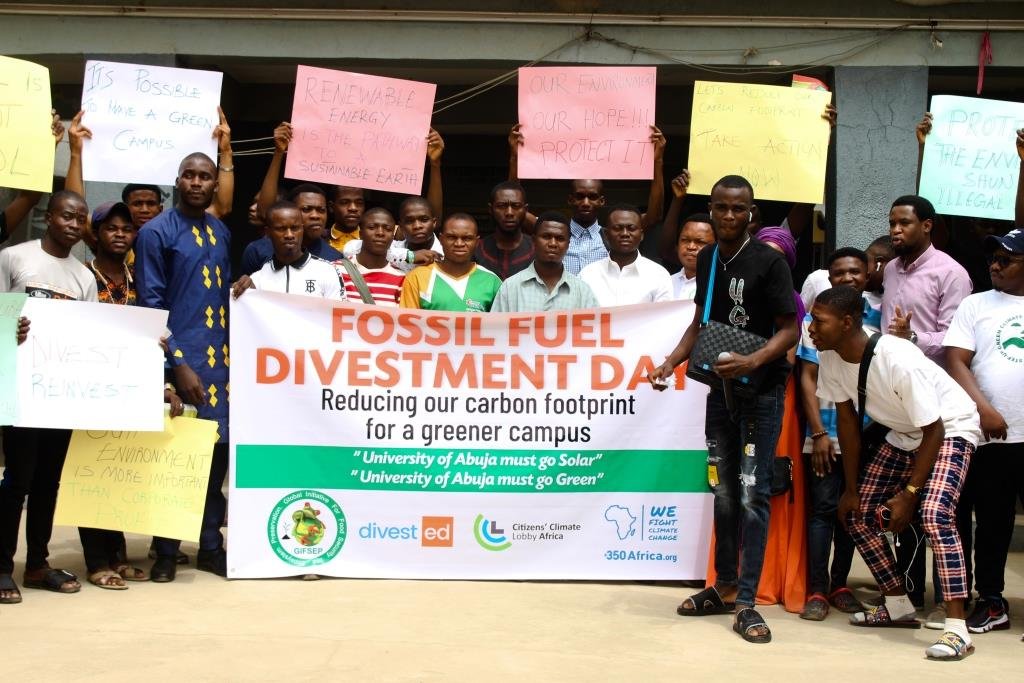
When asked about what to expect after this divestEd initiative, Joseph Ibrahim of GIFSEP said “We are still having issues of unstable electricity supply. We believe this initiative will inspire the students and the university to take on renewable energy and create an example for other campuses and schools and hopefully Nigeria as a whole. ”
I was at University of Abuja today to make a climate change presentation and joined the students to demand for a greener campus #F2D2 #FossilFuelDivestmentDay #Afrikavuka pic.twitter.com/0J1CMcunDl
— Joseph Ibrahim (@joeibro) February 13, 2020
Both teams joined the Fossil Fuel Divestment Day or divestEd, a mobilisation moment led by US divestment students to demand specific institutions to divest from fossil-fueled destruction of land, air, and water and re-invest in renewable energy.
Author: Rukiya Khamis, 350Africa.org Anglophone Field Organizer.
Integrating renewable energy agenda into Accra’s districts development plans
In 2020, 350 Ghana Reducing Our Carbon’s work (GROC) is focused on creating awareness on renewable energy and will be working closely with 5 districts of the Greater Accra to develop local renewable energy plans in their efforts to activate Renewable Energy programming contributing to a substantial impact to Ghana’s Energy Policy by 2030.
This week, GROC hosted a workshop in Ayawaso West Municipal Assembly, which is one of the 260 Metropolitan, Municipal and District Assemblies (MMDAs) and forms part of the 29 MMDAs in the Greater Accra Region.
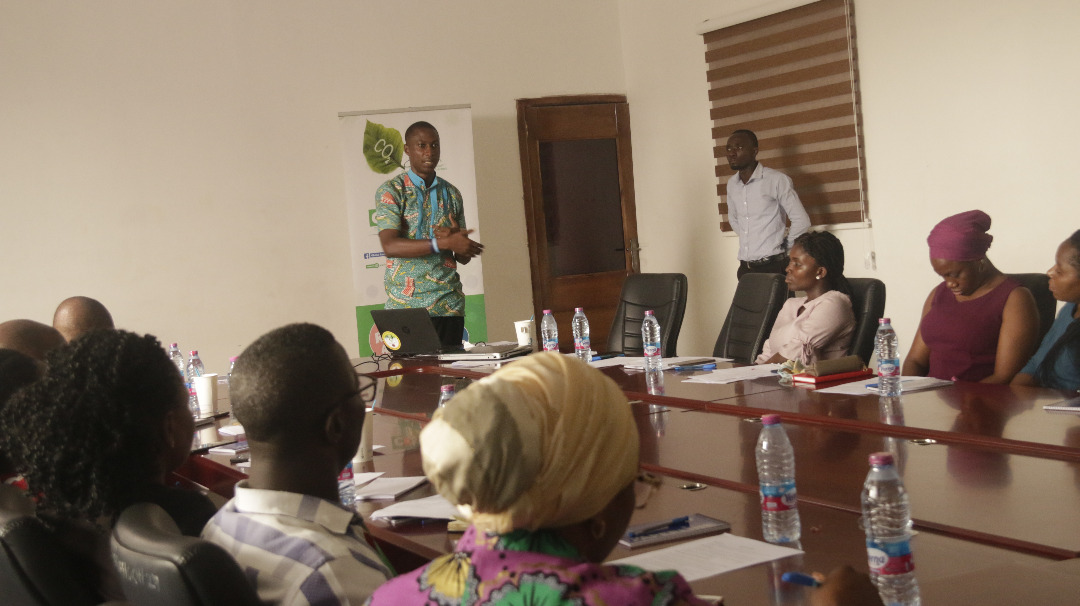
The workshop’s goal was to identify and build partnerships with key stakeholders within that municipality who are working towards the renewable energy agenda and to get insights that would inform the integration of renewable energy section into the Medium Term Development Plan (MTDP) and Action Plan for 2020.
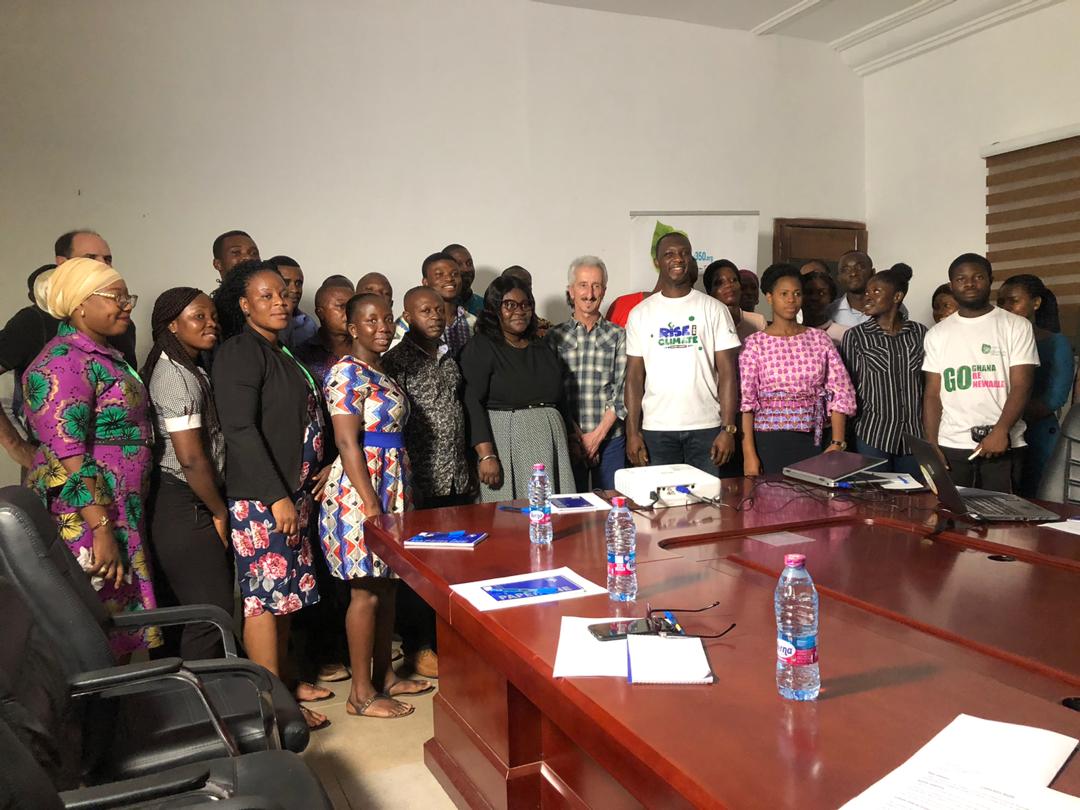
This workshop is the launch of a campaign to get the Renewable Energy agenda integrated into local development plans that will take place throughout the year in four other districts like Ga West Municipal Assembly, Ashaiman district, Accra Metropolitan District and Adentan Municipality.
Author: Rukiya Khamis, 350Africa.org Anglophone Field Organizer
Celebrating the 40th anniversary of St Francis of Assisi as patron of ecology by striking for climate
November 29th this year coincided with the 40 year anniversary of Saint Francis of Assisi as Patron of Ecology. He was declared by Pope John Paul II in 1979 on the same date.
Mother Earth Network in collaboration with The office of Justice Peace and Integrity of Creation Franciscans Africa celebrated the anniversary by striking for climate in the afternoon of Friday, November 29th November, from 3.00 pm to 6.00 pm.
The event brought together 120 participants: Franciscans brothers and sisters, Secular Franciscans, Youfra, the climate movement group from The Catholic University of Eastern Africa and other stakeholders.
The event started with a learning session of conscientization about Laudato Si and St Francis of Assisi spirituality. The discussion was also focused on COP25 happening in Madrid, Spain. In the same regards, some interviews and testimonies were recorded to be shared worldwide.
After that, we e then started the walk for climate justice from the Franciscan Family centre towards The Catholic University of Eastern Africa. During the walk, people were carrying placards and banners with messages like. No need for fossil fuel in Kenya, Mr President to stop any oil business in Kenya, For people in COP25 to honour Paris Agreement etc. The event ended by planting 200 trees for the commemoration of St Francis of Assisi 40 years as patron of ecology.
By Steeven Kezamutima, JPIC Franciscans Africa
The flowers of revolution
The struggle for human rights starts when another person takes land and subjugates the people of that land through laws that undermine their personhood. So what is liberation? Why does the idea of freedom run in the blood of so many and why is it so contagious? The decolonization of Africa was a radical and transformative period where young leaders took to organizing themselves and spoke of the injustices that saw the majority African population being pushed out of economic participation, being dehumanized and outright exploited for labour.
Colonization was the unadulterated rape of nations in the greedy pursuit of control for our natural resources. And slowly this penetration of colonial power seeped into the social fabric of African livelihoods, manifesting as displacement, the vulnerability of women and children heightened, and poverty and injustice became a daily reality.
Tell me today, African child do you not see the same pattern taking on the form in the fossil fuel industry; greed, a disregard for human life and the suffering of many? Tell me African child do you not see the seeds of discord being sowed among us, with promises of jobs, houses and money while our environment is being ripped to shreds, our diversity is being corroded and we are now forced into the exile of the self.
The continent is not being divided by countries any more as with the Berlin Agreement of 1885, it is being chopped up by Exxon, Shell, BP, Total, Anglo American PLC, Sasol Mining, Glencore Xstrata, Exxaro and South32’s South Africa Energy Coal, Yanzhou Coal, Shaanxi Coal.
And as the impacts of climate change increase and we see the rains don’t come, the signs of the times are here. The direct consequences of man-made climate change include: rising maximum temperatures, rising minimum temperatures, rising sea levels
higher ocean temperatures, an increase or decrease in precipitation ( rain and hail)
shrinking glaciers and thawing permafrost. The indirect consequences of climate change, which directly affect us humans and our environment, include an increase in food and water crises, especially in Africa, health risks through rising air temperatures and heatwaves. The economic implications of dealing with secondary damage related to climate change mean vulnerable African countries will go into more debt when the secure loans from foreign nations with natural resource interests.
I come from a family of activists, we are inherently activists, every single African. In us, we have the spirit of radical leaders who brought freedom to nations such as Jomo Kenyatta(Kenya), Kwame Nkrumah(Ghana), Julius Nyerere(Tanzania), Léopold Sédar Senghor(Senegal), Nnamdi Azikiwe(Nigeria), and Félix Houphouët-Boigny(Côte d'Ivoire)
The hunger for freedom starts with one and catches like wildfire. We have everything to lose and we have run out of patience. We are the flowers of revolution and we demand revolutionary energy for our future. The time to deCOALonize is here. #AfrikaVuka
Join a Global ClImate strike near you www.globalclimatestrike.net
The largest day of climate protest in the planet’s history
In a world with rising sea levels, scorching temperatures, devastating fires and more pollution than we can track, we can’t afford to look away. Science and justice demand that we do more than simply address the symptoms of the climate breakdown. We need to build solutions that will not only keep fossil fuels in the ground but improve the lives of billions of people.
On September 20th - 27th, there will be the first all-ages global climate strike. People will walk out of their jobs — some will plant trees, others will join protests. The targets will be as diverse as the geography: in different parts of the planet, people will be sitting down in front of pipelines; demanding that their institutions divest fossil fuel stocks; urging UN nations to increase their carbon-cutting commitments; calling for carbon taxes; insisting on a Green New Deal. And here in Africa:
In Abuja, Nigeria: People will take to the streets to demand that policymakers make greater strides in environmental policies and laws.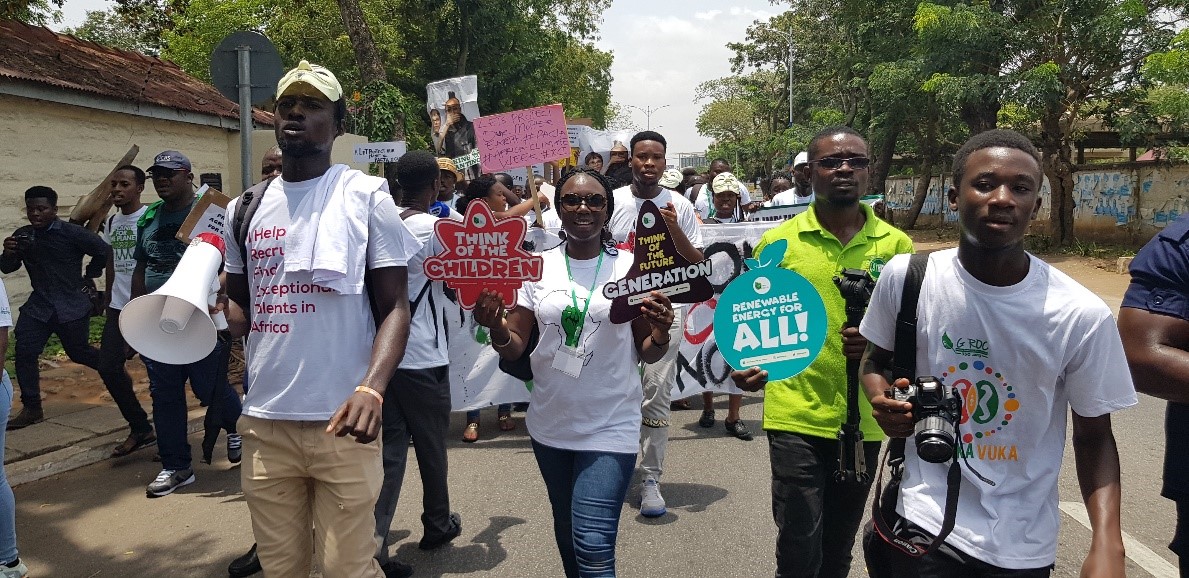
In Cape Town, South Africa: Learners from around 50 schools across the city will protest the South African Government’s lack of action on the climate emergency. 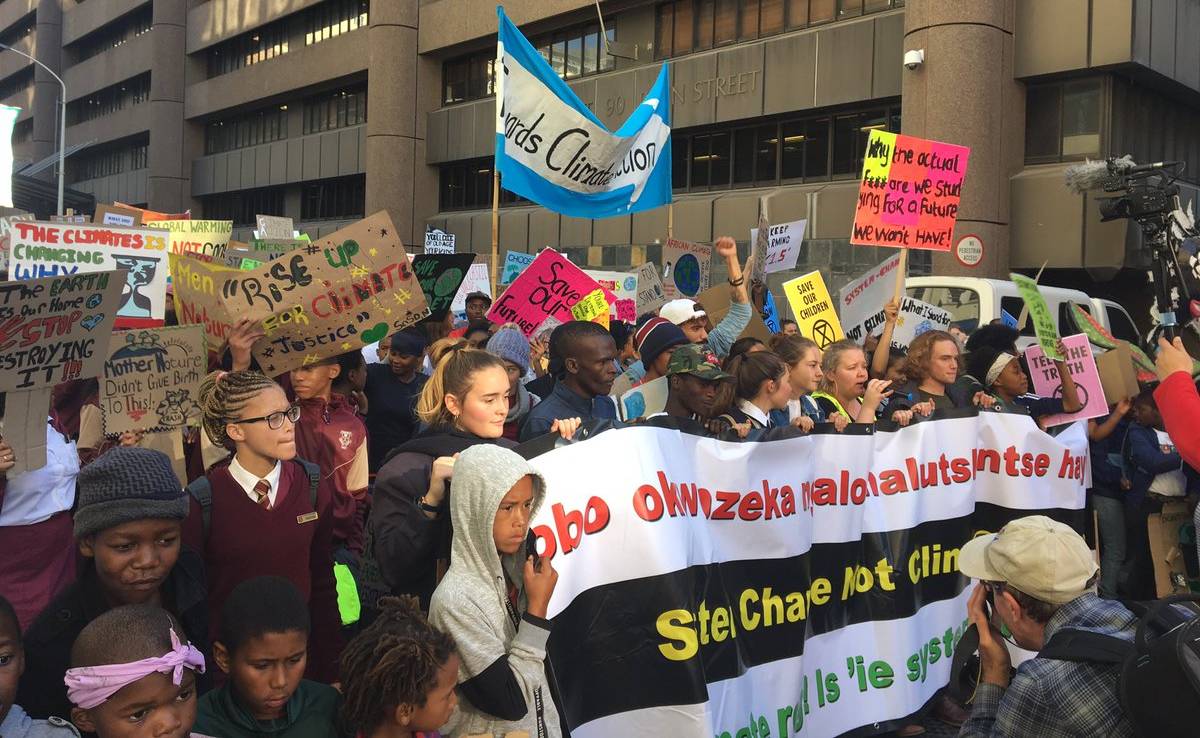
In Goma, Democratic Republic of Congo: local communities, civil society organisations and young people will mobilize around climate issues to inform the population about the climate emergency and call on President Felix Tshisekedi to adhere to national and international conservation laws, protect farmers and prioritize investment in renewable energy. 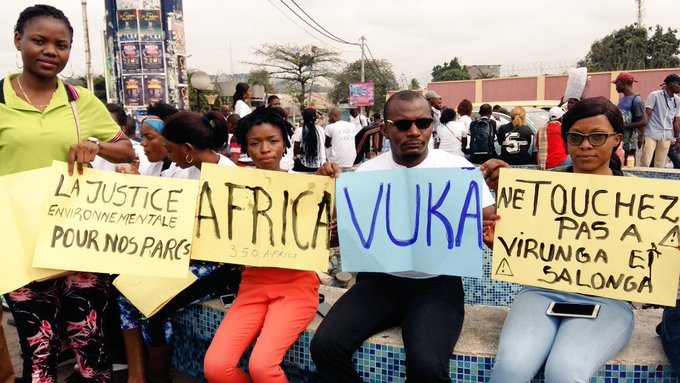
In Johannesburg, South Africa: There will be a peaceful march to call for an acceleration of a just transition towards a low carbon, renewable energy future. 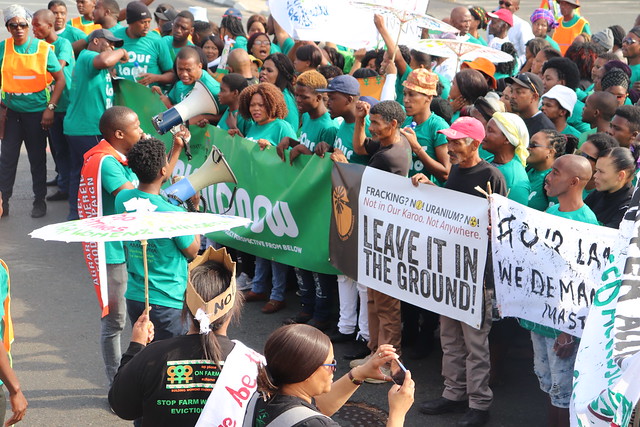
In Kaolack, Senegal, Action Solidaire International is organising a climate camp that will be followed by a march to call on policymakers to stop the Bargny coal-powered station from operating.
In Nairobi, Kenya, Led by thousands of workers, students and youth organizers all across the country are coming together to let their government know that they won’t stand down from their demands for a shift to 100% renewable energy.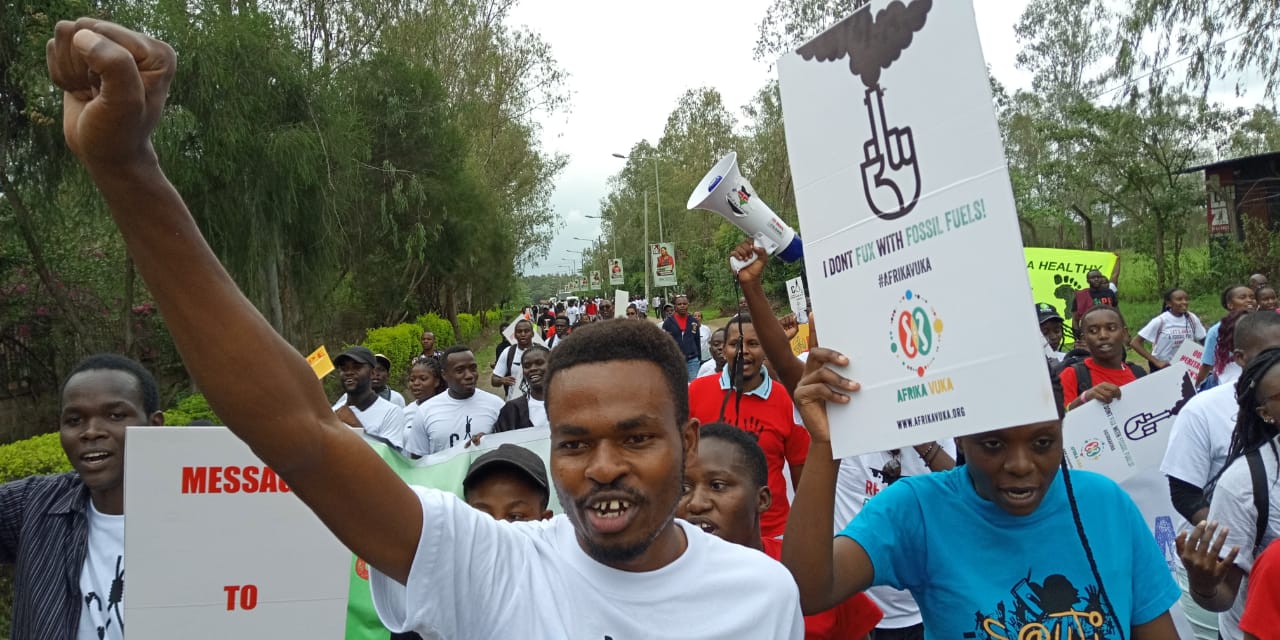
Many more people in Africa and around the world are joining the Global Climate March to demonstrate that there is a global movement demanding real climate action. Check out the website to see if something is planned near you already - or register your own event.
Telling the African Climate Movement Story
Earlier this month, I had the pleasure and privilege to travel to Gisenyi in Rwanda for a #AfrikaVuka digital organizing and storytelling skills training.
About 20 activists gathered from across Africa to participate in the training. We spent 4 days sharing knowledge, stories, and songs, while building trust and digital organizing skills to take the #AfrikaVuka movement to the next level.
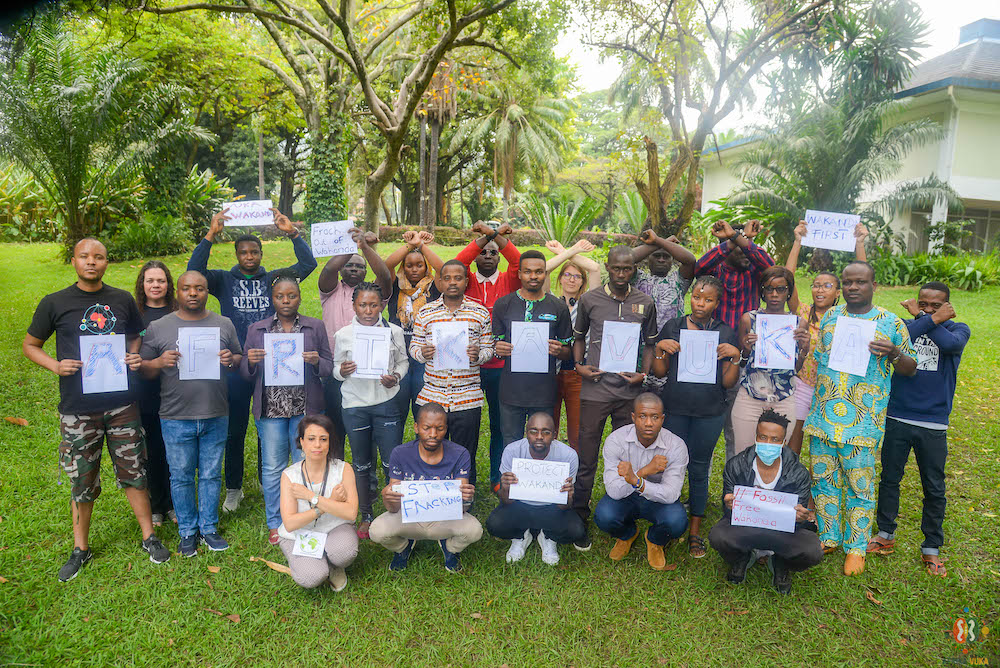
As discussions on the importance of climate stories unfolded, common themes crossing geographic boundaries gave insight into how stories all over Africa are being told. It became imminent that in order to grow the climate movement in Africa, communities living at the frontlines of climate change need to own their stories -- and also challenge the way stories about Africa are told in general.
Entrenched narratives of Africa have often left the continent misunderstood. Crude descriptions of Africa, scaling from the ‘Dark Continent’ to the ‘Emerging One” ignore the complexities of Africa. Instead of trapping Africa into a single story or narrative, this retreat became a space to talk about storytelling practices that speak in their own voice and organizing tools that resonate with people and empower them to tell stories as they are.
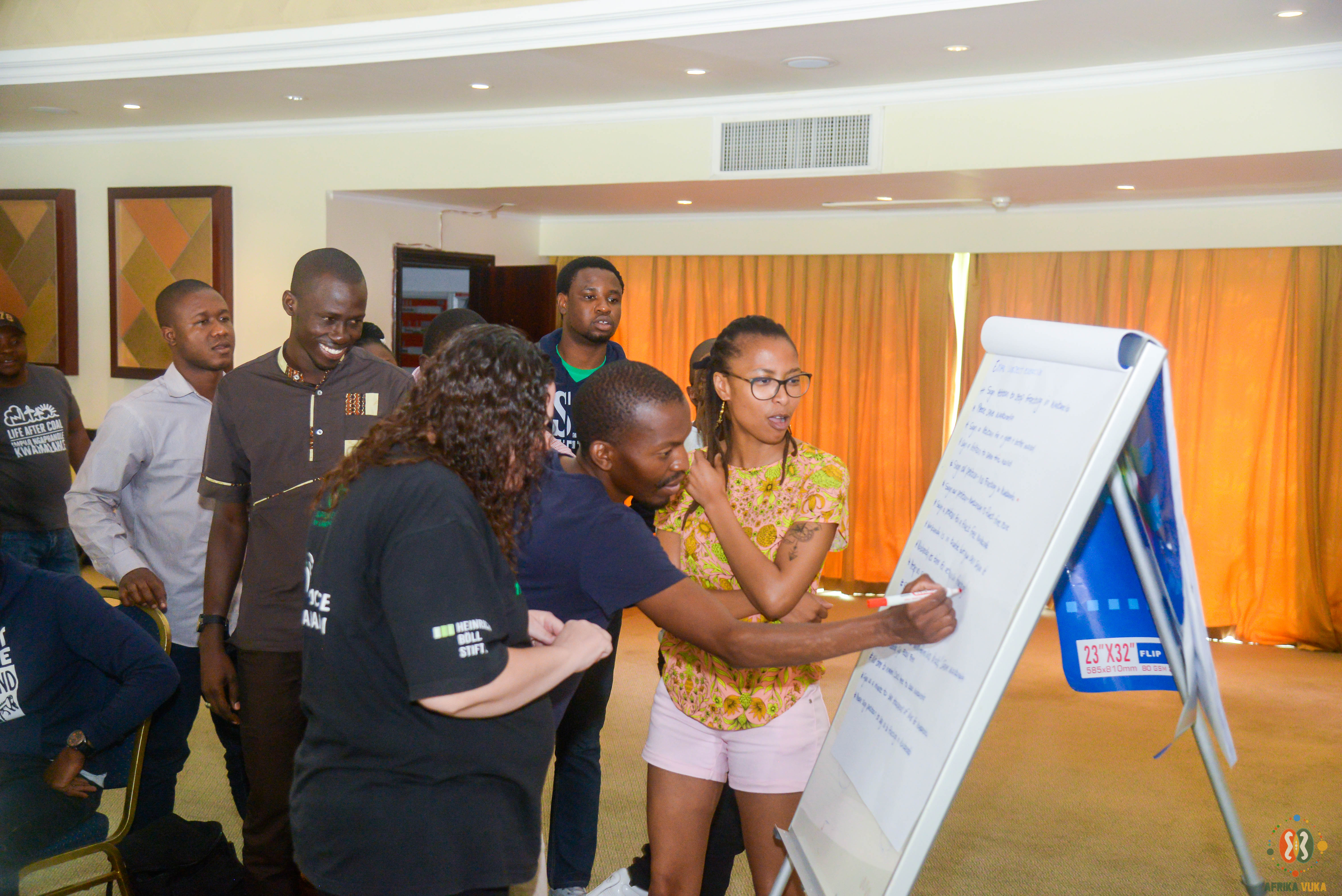
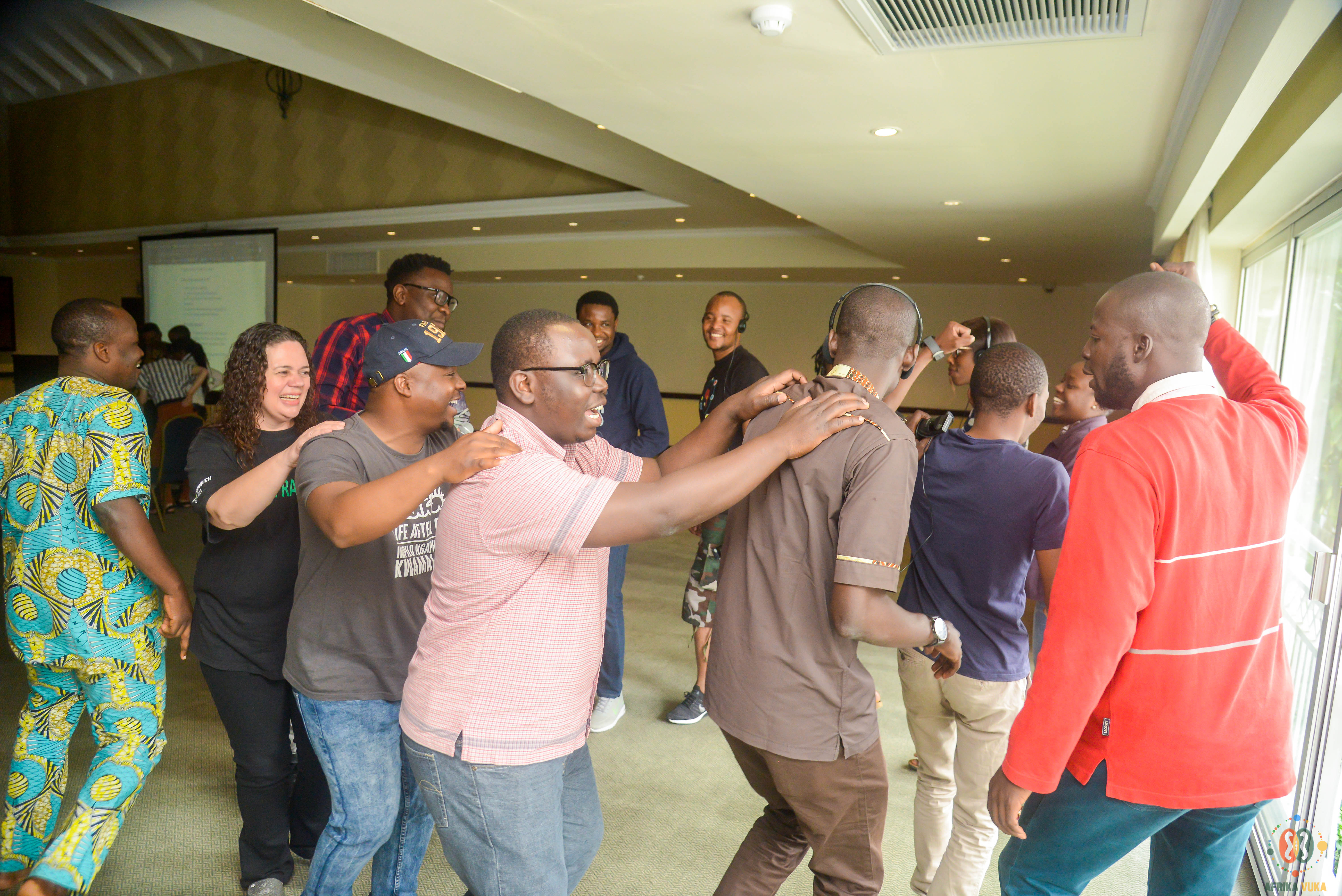
Key take-aways:
- It’s clear that we have to go through a mental shift in our perception of the climate movement in the African context. These experiences can be united with efforts to tackle the climate crisis on a global scale.
- Connecting the climate fights across Africa isn’t only about solidarity, it’s also about strategy. It’s about recognizing that climate change isn’t a single-issue problem. We need to organize not just around climate change, but building the kind of solidarity and unity and that can bring on a massive economic and social transformation that works for everyone -- and use tools and storytelling tactics that speak in individual voices and tools that resonate with our communities.
As the retreat came to a close, a participant shared his story with the group and said: I left my stable life in the UK to go back home and do something about the climate crisis. To me, this is not just about the climate, this is about survival. I can’t think of a better way to convey how I was quickly reminded about the urgency and importance of the work we’re doing together. The need for collective action couldn't be more urgent. As the climate crisis accelerates, it’s up to all of us to take risks for a more just and sustainable world while we still can.
The powerful activists that I met in Gisenyi took their newfound skills and connections back to their local contexts. They’re ready to mobilize in solidarity with communities and take the fight against fossil fuels to the next level. Next stop is the Global Climate Strike. These activists will join thousands of people around the world to organise climate strikes in workplaces and communities on 20 and 27 September. Find out more here.
More: As part of the storytelling session, participants were asked to create content that explains why they’re in the fight for climate justice. Here’s some of what came out it:
Photos:
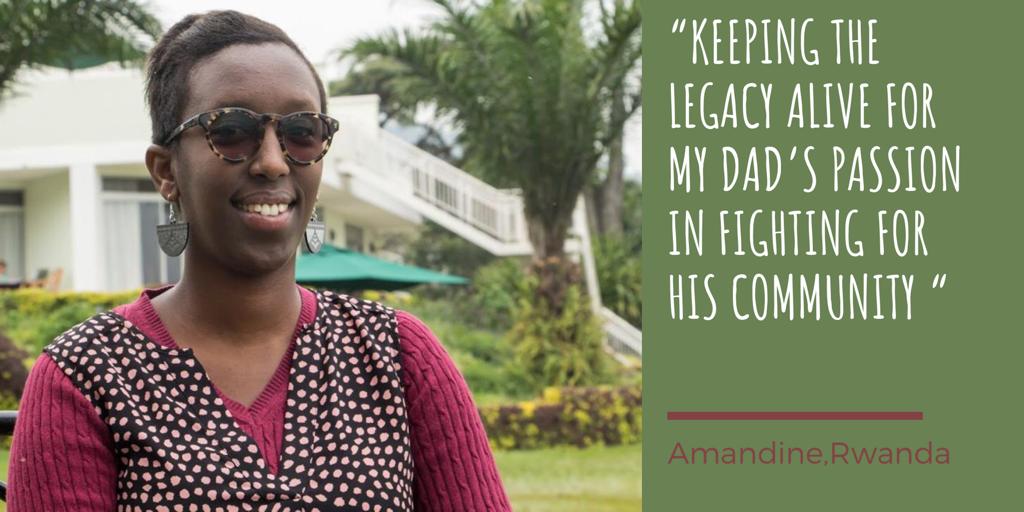
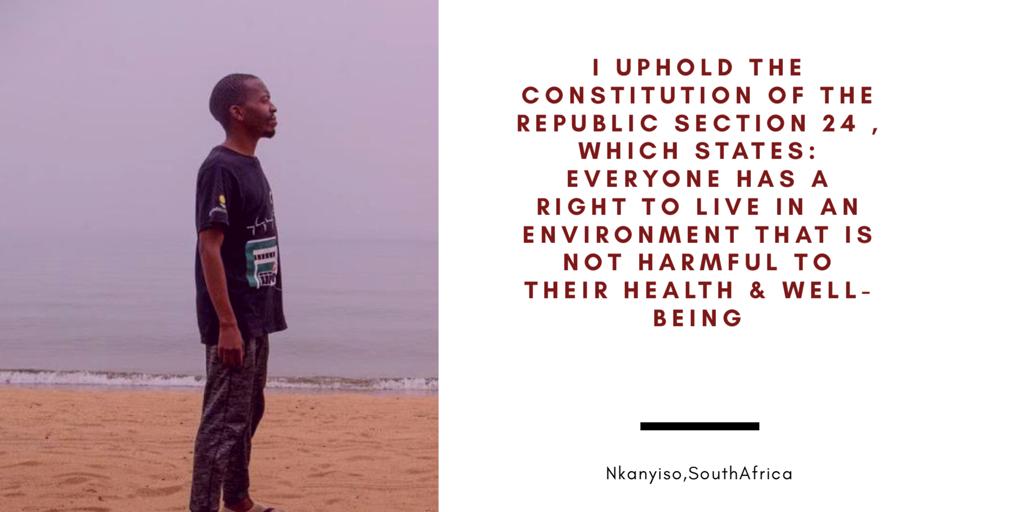
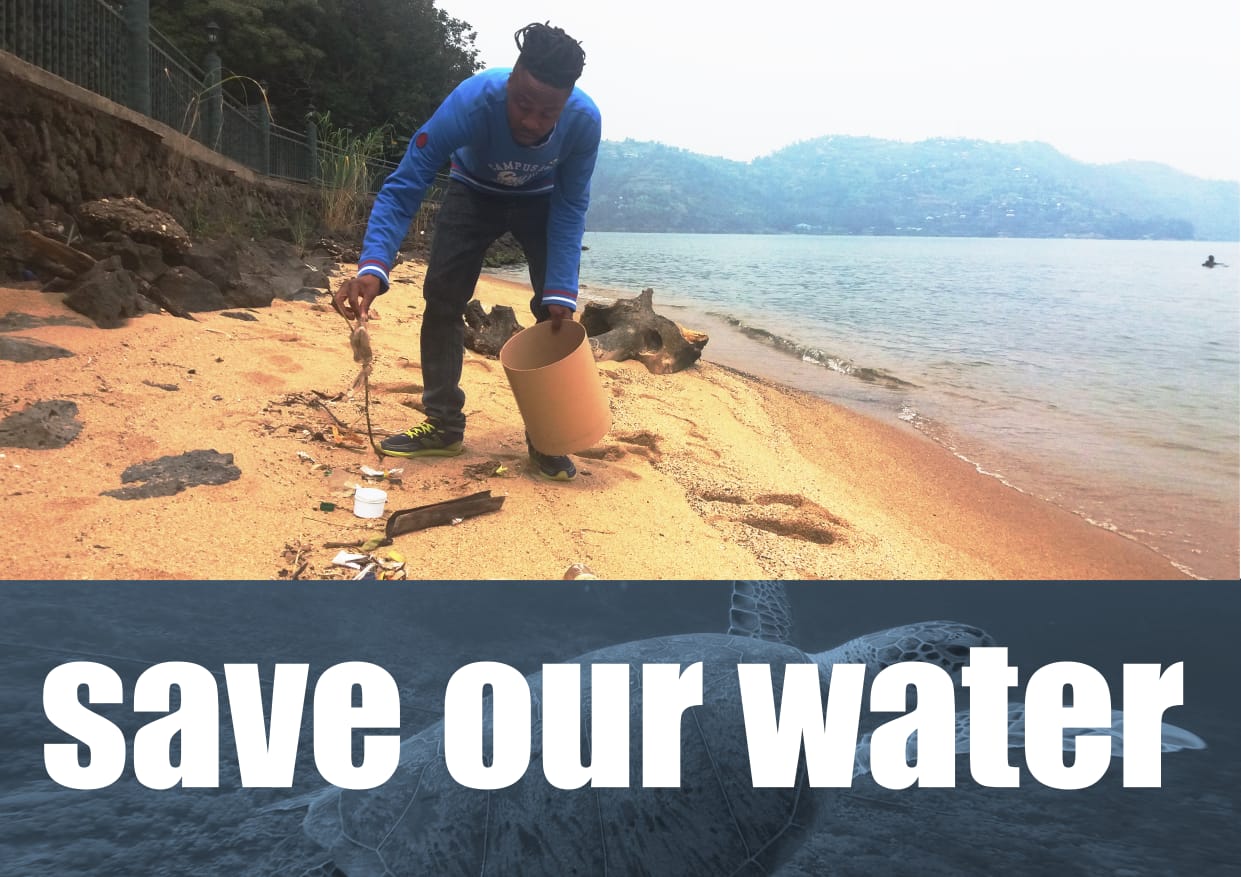
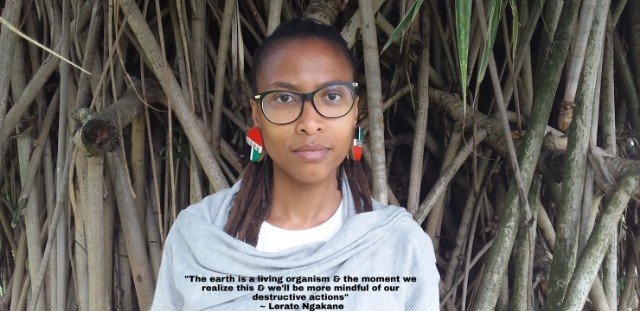
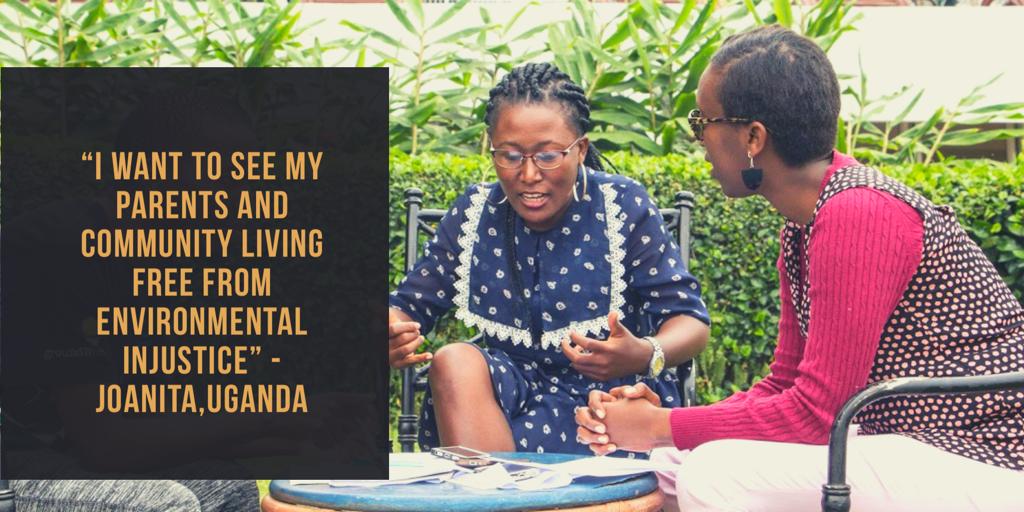
Videos:
Author: Chris Kif, 350Africa Digital Campaign Manager


